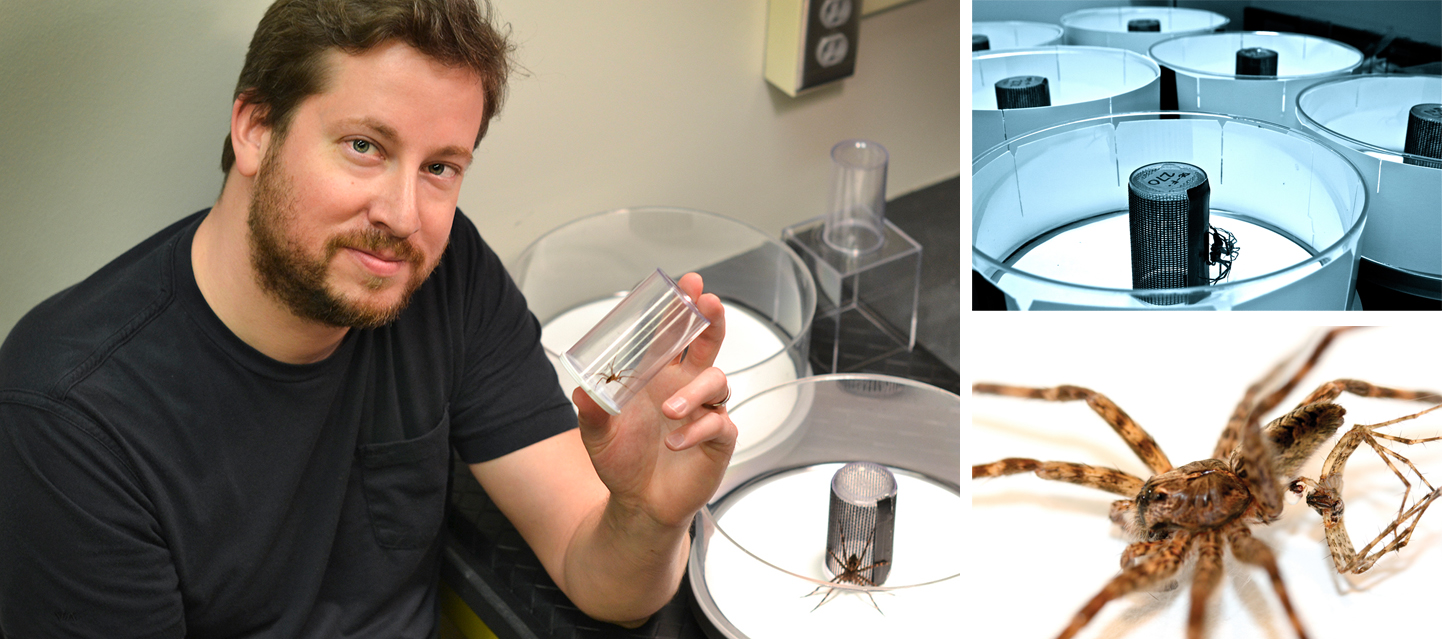
It's the ultimate nuptial gift — at least that's what Steven Schwartz calls it. Others may just be glad they aren't a male dark fishing spider.
Schwartz, a post-doctoral researcher in biological sciences, discovered that the mating habits of dark fishing spiders, which reside in most of North America, include both cannibalism and male self-sacrifice.
While it is not uncommon in the world of arachnids for males to be eaten by the female following mating, what sets the dark fishing spider apart is that the males die spontaneously during copulation.
"In the insect literature, there are examples of nuptial gifts," he said. "Generally, the nuptial gift is a food item given to the female during mating. It may increase some aspects of the female's fitness and if that female mates with the gift-giving male, his offspring will benefit. The most extreme form of a nuptial gift would be the male offering up himself. And in self-sacrificing species that are sexually cannibalistic, males essentially become the food item for the female."
Schwartz said he was surprised when he discovered exactly what happened during and after dark fishing spider copulation. When he began his research on the species in 2006, he said he thought it might be the actions of the female during sex that caused the male's death. But once he focused his research on the mating behavior, he realized that male death resulted from the genital mutilation that occurs, rather than any actions by the female.
This didn't really make sense to Schwartz, who received his Ph.D. in ecology, evolution and behavior from UNL in May. He noted that the male dark fishing spider is actually equipped with two pedipalps that contain sperm, but they die after using only one.
"There's an obligate nature to it," Schwartz said. "All males are dying and that's kind of strange. These males are not fulfilling their reproductive potential."
Schwartz said an instinctual preference of sexual partners may benefit the male. In laboratory trials, the male dark fishing spider exhibits a preference for virgins, virgin silk that is. Schwartz said that the male's behavior may be associated with sperm precedence.
"That would be a benefit to the male, especially one who mates only once," Schwartz said. "They could potentially get a larger slice of paternity if they are the first male mating with a virgin female."
Schwartz's study, co-authored by his Ph.D. advisers, William Wagner Jr., professor of biological sciences, and Eileen Hebets, associate professor of biological sciences, was published in Royal Society Biology Letters this month.
— Deann Gayman, University Communications